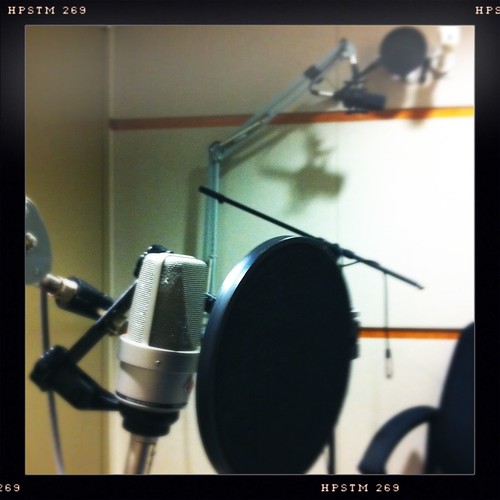Last week I was on an Australian radio show, Encounter, in an episode on "Worship 2.0."

via flickr
I appear about 40 minutes into the hour-long show, but there are a LOT of interesting people in the show. There's also a 20 minute-long Web-only extra with more of my interview, which goes into the contemplative computing idea is much greater detail. It's drawn from about an hour's conversation, and they did a great job of constructing something worth listening to (though I think I sound like one of those machines reading a transcript– which is kind of how I sometimes feel when I'm doing interviews).
There's also a transcript, which is some kind of Javascript button so I can't seem to link to it from here, but it's to the right of the "Transcript" header. Here's a bit of the interview:
Masako Fukui: The idea that tweets can be a mindfulness tool may seem paradoxical to most of us. More often than not, we experience our mobile media technologies as annoying distractions. In fact, rather than make us smarter, information technology is often experienced as a stream of distractions, not a stream of useful information.
But according to Palo Alto-based futurist Alex Pang, we need to interact more thoughtfully with our technologies, by adopting what he calls contemplative computing. And the inspiration for this idea goes back a few thousand years.
Alex Pang: The Buddhists have a wonderful term called ‘the monkey mind’, which is the mind that’s always jumping from topic to topic, that can never be still. That is an ancient concept and I think it perfectly describes our minds on Facebook and Twitter.
And what this means is that not only do we have thousands of years of dealing with the impacts of new technologies—from the invention of language to alphabetic systems to the printing press down to the internet—but we also have an equally rich history of dealing with the consequences, of learning how, despite the deluge of words that came from the invention of codex books in the third and fourth centuries AD or the rise of cities and global trade, to deal with the distractions that all of those cause.
It was a fun interview to do: the show is recorded in Sydney, and I went to the Stanford radio station, which has some kind of amazing high-bandwidth connection into its studios, so it sounded like I was right there with Masako.
(This is the second time I've been interviewed by an Australian radio show. A couple years ago Future Tense interviewed me about my essay "The Evil Futurists' Guide to World Domination." Curious.)